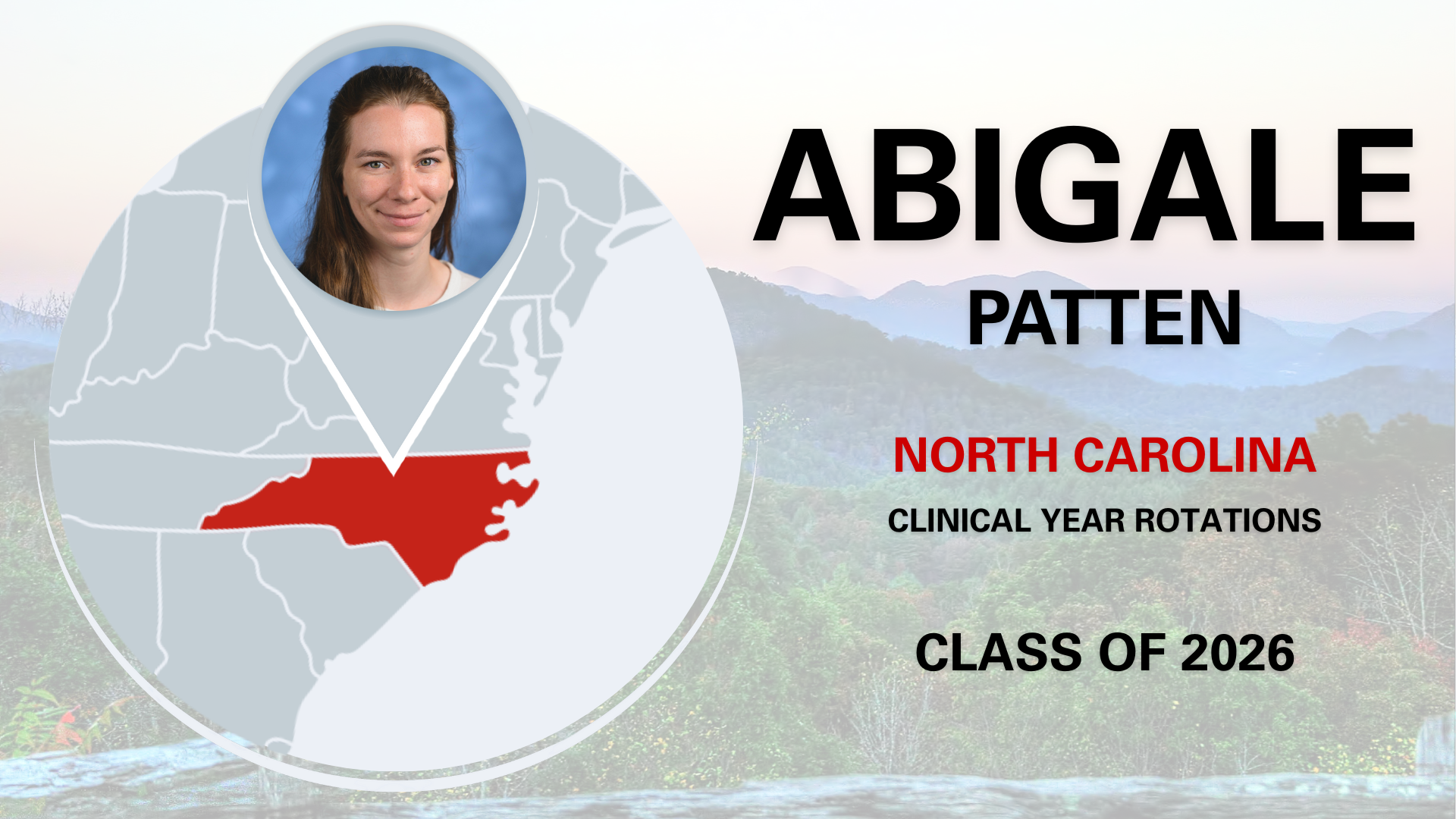Immersive Oncology: NC State Hopes New Clinical Experience Broadens Understanding, Horizons
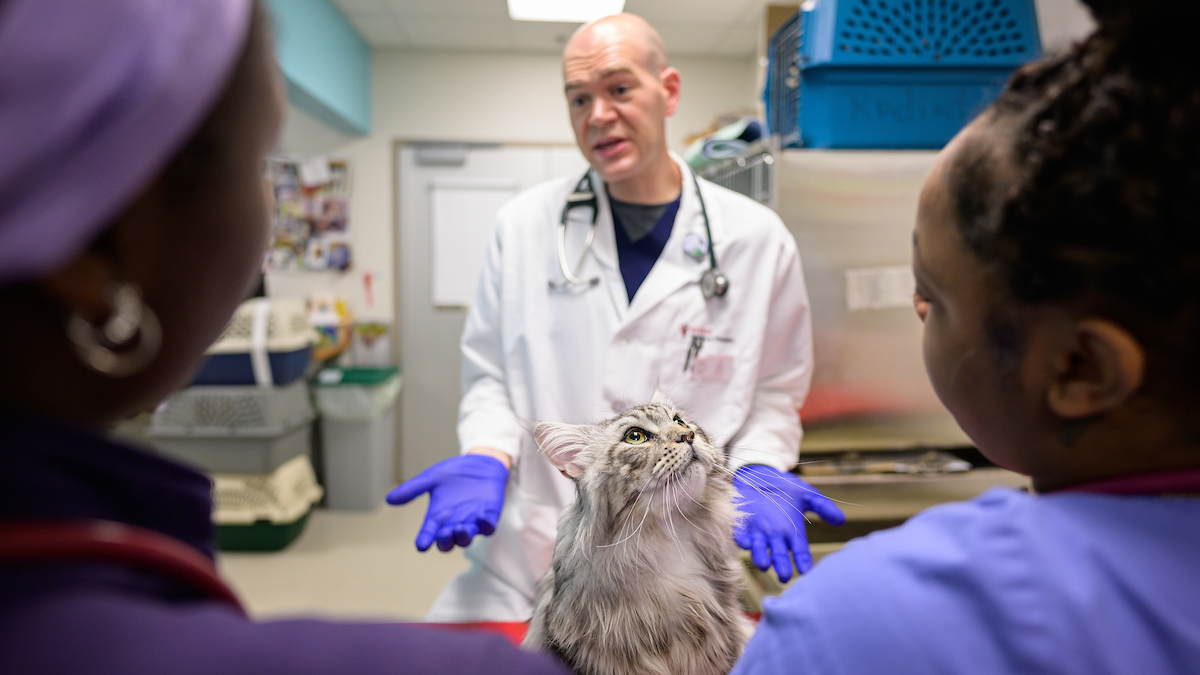
The NC State College of Veterinary Medicine has launched a new program designed to help first- and second-year veterinary students from universities across the country explore important medical specialties they could pursue as careers.
Dr. Mike Nolan, professor of radiation oncology, spearheaded the creation of NC State’s first Immersive Clinical Experience, or ICE, in Oncology this summer. He says an important goal is to help DVM students, regardless of career path, understand more about animal cancers and their treatment.
“A lot of pets get cancer, and yet many veterinarians and students are not all that familiar with the different types of oncologists that exist to help coordinate care,” Nolan says. “We thought that introducing a clinically focused educational program early in the curriculum could be a way of improving awareness of the various roles that medical, surgical and especially radiation oncologists play. We also thought it could become an opportunity to enhance enthusiasm for considering a career in oncology.”
Program participants spend 10 weeks embedded within the radiation oncology service at the NC State Veterinary Hospital. NC State was able to provide each student with a stipend from philanthropic donations to the radiation oncology program and with additional financial support from the college.
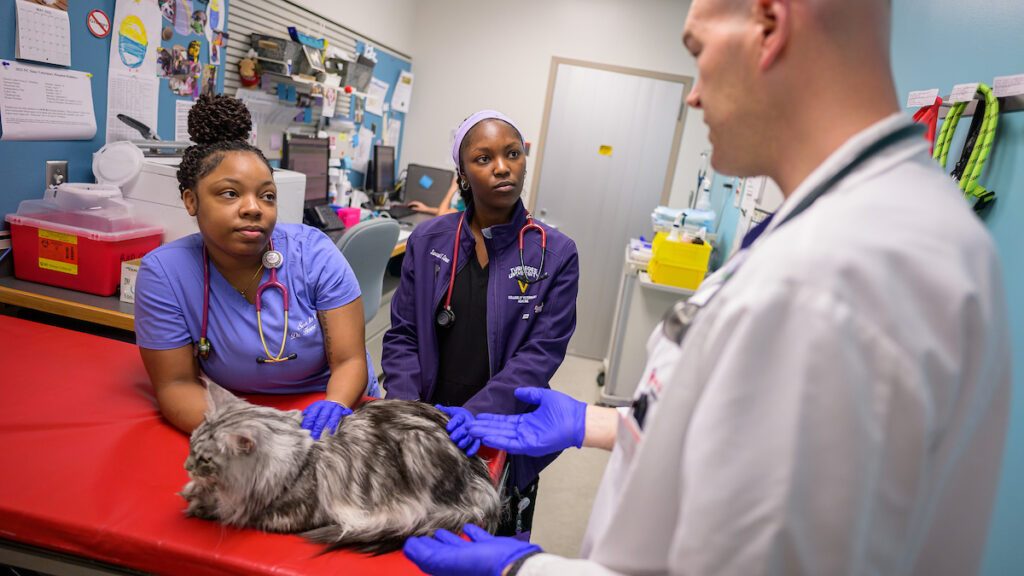
From an impressive pool of applicants, Briana Horne-Reid, a second-year DVM student at NC State, and Savannah S. Simon, a second-year veterinary student at Tuskegee University in Alabama, were selected to participate. They started last month.
Each week, the students are spending three days shadowing and participating in the clinical service and two days working on a mentored clinical research project.
Nolan says they’ll have ample opportunity to hear how oncologists counsel families, develop clinical skills, see clinical trials in action and gain a basic understanding of the technical aspects of radiotherapy.
’10 out of 10′
Both Simon and Horne-Reid say the first few weeks have already been life-changing.
“It’s so perfect,” says Simon, a Spartanburg, South Carolina, native. “Right now, my main interests are internal medicine, neurology and oncology. I feel like these specialties allow veterinarians to work with families a long time on cases and build relationships with them, which is what I want.”
Simon calls the ICE program a “great opportunity” and envisions being able to mentor others in oncology when she returns to Alabama.
“Tuskegee doesn’t have oncology as a specialty in its teaching hospital, so I knew I could take advantage of the resources here and then take back what I’ve learned to help others as well,” she says.
Horne-Reid, who received her undergraduate degree in animal science at NC A&T in Greensboro, has held jobs in an emergency veterinary hospital and hopes eventually to work with swine in some capacity.
“When I worked with the general practice those two years, we diagnosed cancer sometimes, and after that we just referred them or had to euthanize them,” she says. “I wanted to know the other side of the referral and to see if there’s any hope. It’s been fun learning about it. I’ve been looking under microscopes and practicing my cytology as well. Definitely recommend — 10 out of 10.”
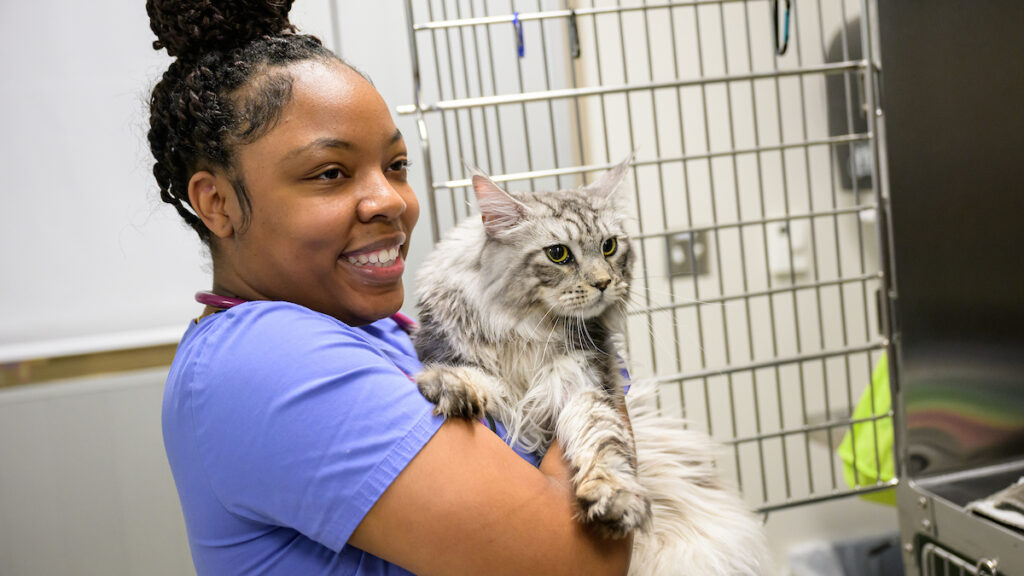
Nolan says he hopes to be able to offer the program annually, creating a model that other specialty practitioners could then replicate.
“The dream would be to set up an endowment to allow this to live on without need for annual fundraising,” Nolan says. “And I intentionally made the name generic so that it can be adaptable to other clinical specialties. Whereas this year we have the ‘ICE in Oncology,’ one could imagine in future years having an ‘ICE in Urology’ or ‘ICE in Ruminant Medicine.’”
Oncology is an expanding field with a broad impact. A third of cats will develop a tumor during their lifetime and half of dogs over age 10 will be diagnosed with cancer, Nolan says.
“These are scary statistics, but options for veterinary cancer care are rapidly evolving. And that expansion is borne from research that holds promise for simultaneously improving care in pets and people with cancer,” he says. “It’s an exciting time to be an oncologist!”
But the number of specialists, especially from underrepresented minorities, isn’t keeping pace, he says. Nolan says he sees the ICE program as a step toward addressing those disparities.
“I look at my own profession, and I don’t think there’s a single Black veterinary radiation oncologist in the world,” he says. “I thought, ‘How can we address that and make this field more inclusive in the future?’ Maybe this program can help us take a step in that direction.”
Immediate support for program
Nolan says that, when he was a veterinary student, he would have had to pass up a summertime educational opportunity if the alternative was a regular job that paid more.
“In developing this new ICE program, it was important to me that financial barriers and income inequality not stand in the way of someone being able to participate,” he says. “We identified resources to offer participants a relatively large stipend. The goal was to take finances out of the picture, so that applicants could concentrate on picking the best opportunity for their professional development.”
Nolan first came up with the idea for the ICE program in March, and he is especially grateful that the NC State College of Veterinary Medicine immediately supported him and that so many people worked together to make it happen this summer. He also couldn’t be happier about the two bright, inquisitive students keeping him and his department on their toes.
“To offer this program to someone from Tuskegee, where students don’t have access to oncologists, it gives NC State a chance to expand our influence and our ability to educate about cancer medicine at other universities, other communities and other parts of the country,” he says. “So far it’s been a lot of fun. The two women we have in this program are smart, asking incredible questions. They’ve already impressed me.”
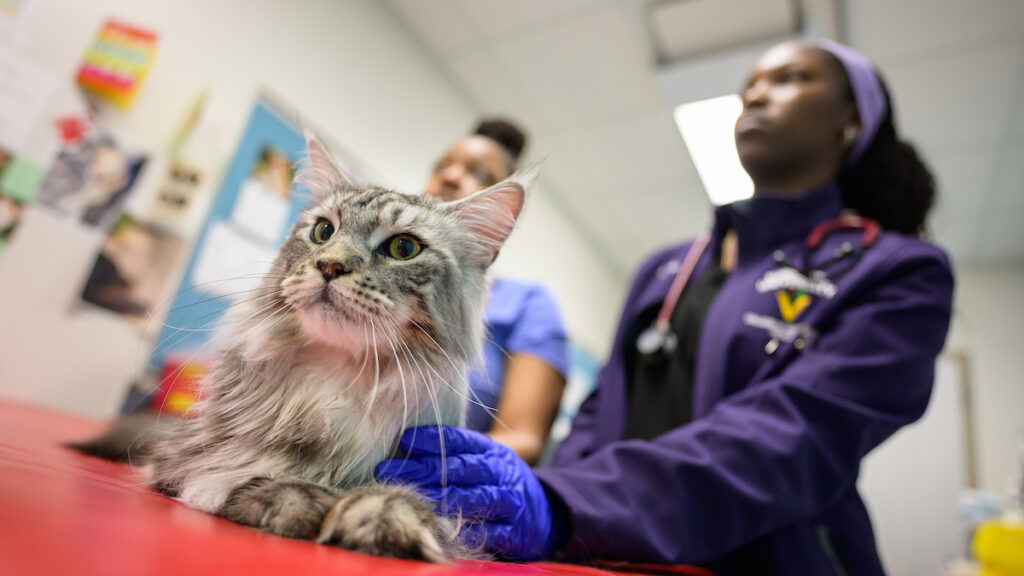
- Categories:


